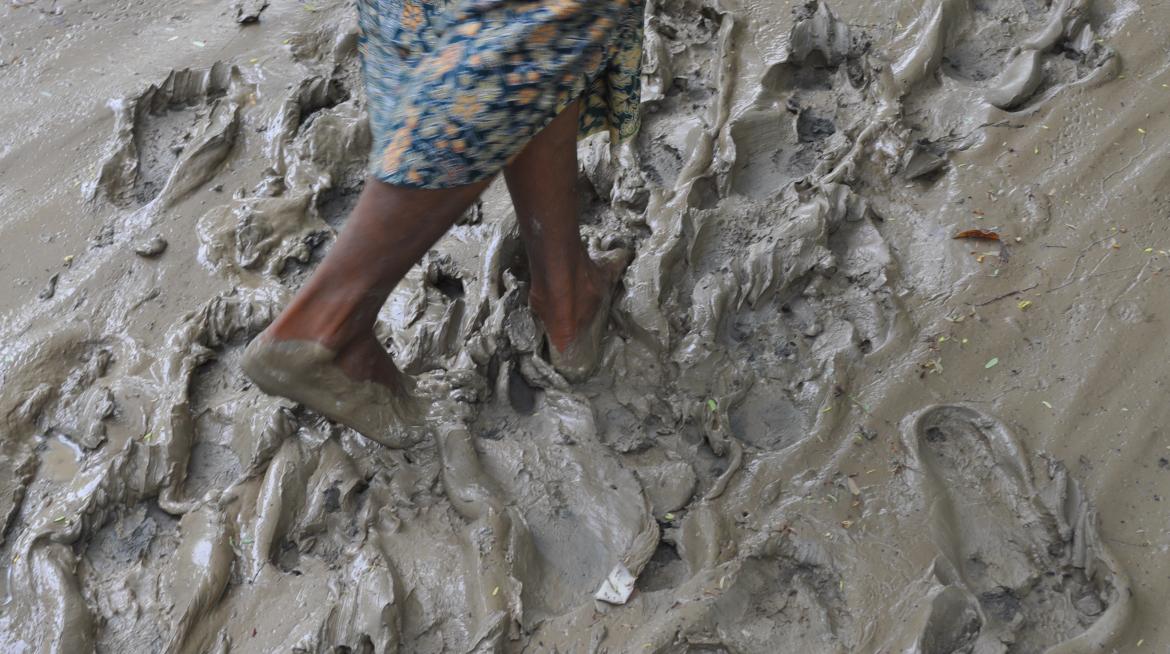
As soon as flood damage reports came in, LIFT donors allocated US$ 1 million of new funding to support the livelihoods recovery of people affected by the floods.
LIFT has worked hard with partners to allocate this funding, working towards these main objectives:
• to get key livelihood activities restarted as quickly as possible
• to minimise the increase in household indebtedness caused by the floods
• to minimise the impact of loan defaults on the long-term sustainability of our microfinance partners - and the future access of poor households to affordable financial services.
We are pleased to advise that LIFT will support local microfinance partners to provide much needed assistance to 66,651 flood-affected households - or around 286,000 people - at a total cost of $988,000. The activities, described below, will also strengthen the resilience of LIFT's microfinance providers working in flood affected areas, which is key to the future resilience of rural households:
- Ar Yone Oo is a local microfinance organisation, supported by PACT, that works in one of the hardest hit townships, Kalay. They have 2,326 clients - or about 50% of their total loan portfolio - who have suffered devastating loss. LIFT will support Ar Yone Oo to write off the outstanding loans for all of these clients. LIFT will also support them to provide a cash grant in relief assistance to each client’s microfinance institution savings account.
- Ratana Metta & Border Areas Association are also local microfinance institutions supported by PACT. They work in Monywa (Sagaing) and Shwekyin (Bago) respectively, both of which have been hard hit. Together they have 4,512 clients that are severely affected. LIFT will support them to provide those clients with debt service relief. LIFT will also support them to provide a cash grant in relief assistance to each client’s microfinance institution savings account.
- Proximity Finance works in twelve flood-affected townships in the Delta and the Dry Zone. LIFT will support debt service for 2,169 clients that are moderately or severely affected.
- PACT (PGMF) works in 23 flood-affected townships. Because of its size and maturity, PGMF is able to use its own resources to write off all outstanding loans in the two hardest hit townships (Ayardaw in Sagaing and Pwint Phyu in Magway), as well as providing debt service relief to all affected clients in the other 21 townships. Also, PGMF has a beneficiary welfare fund that will be used to provide relief assistance to the MFI savings accounts of 36,540 clients that are severely-affected. LIFT will contribute to partially recapitalise the beneficiary welfare fund.
- CORAD works in Chin, particularly with farmer groups in about 20 flood-affected villages. LIFT will support 2,500 households with the rehabilitation of terraces and irrigation facilities to ensure that terraces and irrigation are ready for the winter season. This includes cash-for-work, materials for irrigation (pipes), and seeds for sunflower, garden pea, sesame, corn, vegetables and paddy.
On top of the new funding, LIFT has also agreed with a number of partners to reallocate portions of existing project budgets to flood-related activities. These include:
• The International Rescue Committee, working with the Tat Lan Programme in Rakhine State, has reallocated budget to procure short-duration and/or salt tolerant rice seed varieties to replant the monsoon crop; secure fresh water supplies; and repair damaged embankments that protect agricultural land.
• Gender Equality Network has reallocated funds for an assessment study of women and children's specific needs after a natural disaster.
• TAG International has reallocated budget to replace damaged beehives and equipment in Magwe.
We thank the LIFT donors: Australia, Denmark, the European Union, France, Ireland, Italy, the Netherlands, New Zealand, Sweden, Switzerland, the United Kingdom and the United States of America. From the private sector, the Mitsubishi Corporation is a donor.
LIFT is managed by UNOPS.


